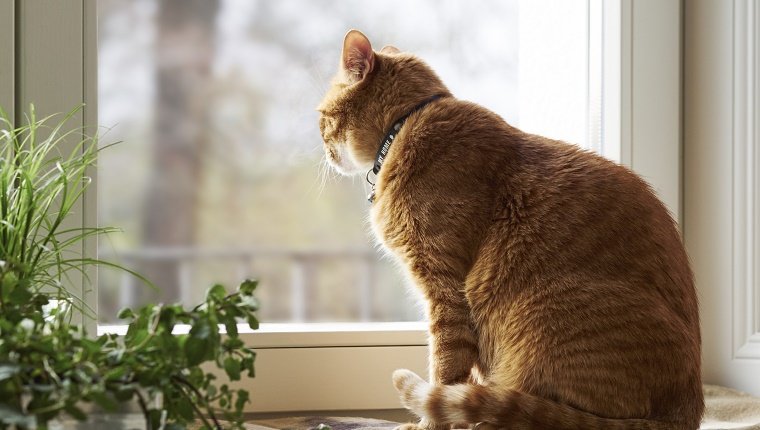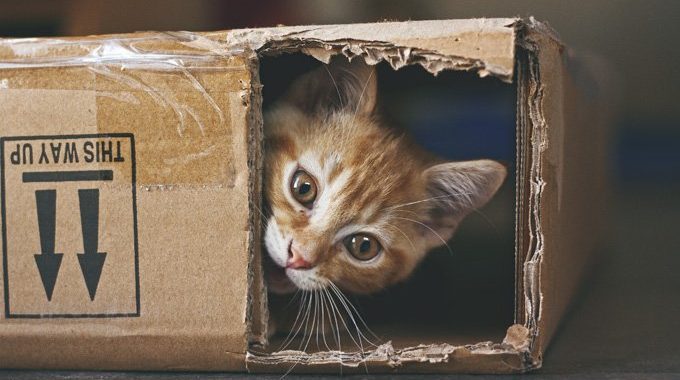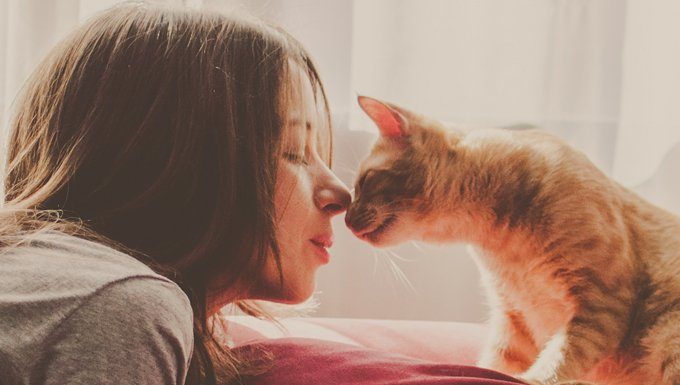Do you speak cat? You can, you know.
Cats communicate with us loud and clear, and not just through meows, yowls, and purrs. A cat’s body is so flexible and expressive that it could be considered a form of living sign language.
From head butts to tail posture, everything a cat does can be perfectly understood — if you understand “felinese.” Here are a few translations to help you understand what your cat is saying.
Headbutts & Scratches
The endearing headbutt or face rub is more than just a friendly greeting. The scent glands between a cat’s eyes, on top of their head between their ears, and on their chin and upper lip deliver the feline equivalent of text messages: “This is mine,” “I like it here,” or “I’m angry.”
Cats also have scent glands on their paws. When they scratch a tree, your sofa, or the carpet, they are making territorial claims that can be understood by other cats. Scratching way up high, for instance, is a message in and of itself: it says “Watch out, because I’m really big.”
Tails, Eyes, Ears, & Whiskers

Body language tells us a lot about how a cat feels. A cat who feels like they have the world by the tail shows it — in their own tail, which is straight up as the cat marches along, king of all they survey.
A cat or kitten who’s frightened, however, slinks along, belly to the ground, tail almost dragging behind.
A cat’s eyes are two of their most revealing features, offering vivid evidence of their intent.
- A cat whose eyes are wide open is ready to rumble in self-defense.
- Narrowed pupils are a sign of aggression.
- A slow blink, on the other hand, is the kitty equivalent of a kiss.
Your cat’s ears and whiskers tell a tale, too. They change position depending on their mood.
If they’re feeling threatened, their ears stand straight up, and their whiskers point straight out.
Body Language & Posture

If that doesn’t work to scare off their aggressor, the cat brings the rest of their body into play. Back arched and tail straight up and bushed out — they’re the very picture of a Halloween cat, one that’s armed and dangerous.
Preparing for action, they crouch low, ears down and whiskers back.
The opposite is the relaxed cat who has complete trust in their person and environment. They offer the ultimate in kitty compliments: they roll onto their back, exposing their belly.
Accept the accolade, but unless you know with certainty that your cat enjoys a nice tummy rub, resist the urge to reach out and pet them. Cats are sensitive about being in such a vulnerable position, and they may strike out before realizing you don’t mean any harm.
What about more subtle messages? If your kitten isn’t playful or your adult cat is normally fun-loving but suddenly isn’t, there’s a good chance something is wrong. It’s probably time for a vet visit!
Cats come programmed to tell us everything we need to know about them. We simply have to learn to read their manual.
Does your cat talk to you with body language? How do you know what they’re saying? Let us know in the comments below!







